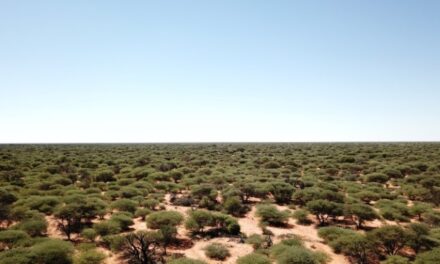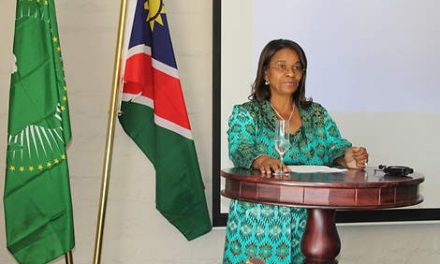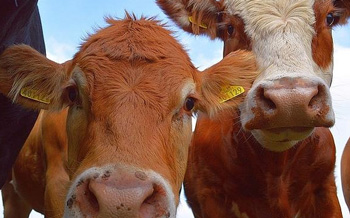
Climate smart technology mitigating drought effects

Despite the ravaging drought affecting the country, one specific feedlot in Outjo, has managed to lessen the effects of the ongoing drought as well as the escalating feed prices, by creating a climate smart feedlot.
Agri GreenGrow recently successfully combined a sheep feedlot with aeroponic fodder production to create a climate smart feedlot which operates 365 days a year in Namibia where its desert, arid and semi-arid land are classified as one of the driest in the sub-Saharan Africa.
Keith Thompson from Agri GreenGrow in response to questions posed by the Economist said that the battle against year-on-year droughts, lower rangeland carrying capacities, bush encroachment and loss of livestock to predators are often problems that farmers face continually.
However, “Climate Smart Feedlots” – a term coined by Agri GreenGrow, allows farmers to run profitable feedlot operations from anywhere in the country on an area much smaller than always.
According to Thompson, Agri GreenGrow’s sheep feedlot in Outjo measures only 600m² in size on which 90 sheep are successfully fattened for market. And to really prove the value of sprouted fodder, Damara sheep that are renowned for not being the best feedlot candidates, were used to prove the trial.
“The results obtained were above industry norm with the carcass weights being the most impressive, slaughtering out 16% more than industry averages. Even a well-known abattoir in the Kunene region commented on the superior quality of the meat and now buys only from Agri GreenGrow for him personally,” Thompson said.
Thompson said with aeroponically grown sprouted fodder available every day of the year as the main feed ingredient, sheep are bought and sold every month right through the year and there is no more seasonal farming while waiting for the erratic rain.
Furthermore Thompson said in perfecting the all-year-round climate smart sheep feedlot, Agri GreenGrow has a comprehensive self-sustainable farming solution that includes the following elements: an aeroponic fodder unit producing sprouted fodder in 7 days, high quality affordable feed produced for the sheep feedlot every day of the year as the main feed ingredient, drought and grazing conditions have no influence on fodder production and fodder production of just under 6 tons per square meter annually while using 96% less water than conventional farming.
“The big difference between a climate smart feedlot and extensive farming methods is that a sheep uses approximately 40% of the energy from its feed to graze when farmed extensively. In an intensified climate smart feedlot that 40% energy is saved and rather expended on weight gain,” he said.
“As grazing land is not needed for the climate smart feedlot, we allocate 10m² per sheep. Thus a feedlot of 400 sheep can be run successfully on less than half a hectare, compared to the conventional land carrying capacity of 6000m² per sheep. Half a hectare versus 240 hectares is quite a difference,” he added.
Meanwhile Thompson said that there has been huge interest in the climate smart feedlots from all over the country and next month their organisation will build feedlots for a farmer in Mariental as well as one in Windhoek.
“Not only do we build the feedlots, but we also continuously stay in touch with our clients, mentoring and sharing data and experiences from our own feedlot,” he added.
According to Thompson, Agri GreenGrow’s climate smart technology does not only have to be used for feedlots.
One farmer in Keetmanshoop who is using their aeroponic sprouted fodder unit to supplement his cattle through winter, Mr Hennie Strauss, said that “to provide supplement feed to my 80 cattle in the form of Lucerne will cost me N$2,700 per day. Taking into account interest on my capital outlay for the fodder unit, seed cost, electricity charges plus wages, I now provide the same supplement feed to my cattle at a cost of N$478 per day.”
With winter coming closer and Namibia still suffering from the consequences of recurring droughts, climate smart fodder production is a cost viable option to ensure a farmer’s operations can run profitably on a continuous basis.











































